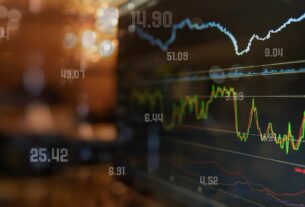Day trading is a popular investment strategy where traders buy and sell financial instruments within the same trading day. This fast-paced approach requires quick decisions, efficient platforms, and reliable trading accounts. Choosing the best online trading account for day trading is crucial for your success, as the right account can help you capitalize on market opportunities while minimizing risks and costs. In this comprehensive guide, we’ll walk you through everything you need to consider when choosing the best online trading account for day trading.
1. Understand Your Day Trading Goals
Before diving into selecting an online trading account, it’s important to understand your goals and expectations as a day trader. Ask yourself the following questions:
- What is your trading style? Are you a scalper, momentum trader, or swing trader? Different trading styles have varying requirements for speed, fees, and tools.
- What assets do you want to trade? Stocks, forex, cryptocurrencies, options, and commodities are popular choices. The account you choose should support your preferred asset class.
- What is your risk tolerance? Knowing how much risk you are willing to take will help you select the right account with appropriate margin levels.
Once you have a clear idea of your goals, it becomes easier to identify the features that your trading account must have.
2. Types of Day Trading Accounts
There are different types of online trading accounts, each designed for specific kinds of traders. Here are the main types:
Cash Account
- In a cash account, you can only trade with the funds available in your account.
- Suitable for beginners who want to minimize risks.
- No borrowing (leverage) involved, making it a safer option.
Margin Account
- A margin account allows you to borrow funds from your broker to trade larger positions.
- Offers the potential for higher profits but also carries increased risk.
- Ideal for experienced traders who want to take advantage of leverage.
Pattern Day Trader (PDT) Account
- This is a type of margin account regulated by FINRA, requiring a minimum balance of $25,000.
- Allows unlimited day trades but comes with strict regulations.
- Suitable for serious day traders with a substantial capital base.
3. Key Features to Look for in an Online Trading Account
To choose the best online trading account for day trading, it’s essential to evaluate various features. Here are the most important factors to consider:
a. Speed and Reliability
Speed is critical in day trading since you need to execute trades quickly to take advantage of market fluctuations. Choose a trading platform that offers:
- Low latency: Fast execution times reduce slippage and ensure you get the best prices.
- Stable performance: A platform that’s reliable and doesn’t experience frequent outages or lags.
b. Commission and Fees
Fees can quickly add up in day trading, so choosing a broker with competitive pricing is essential. Consider:
- Commission rates: Look for brokers offering low or zero commissions, especially if you plan to trade frequently.
- Spreads: The difference between the bid and ask price should be narrow, as wider spreads can cut into profits.
- Hidden fees: Check for additional fees such as account maintenance, withdrawal fees, or inactivity fees.
c. Trading Platform Features
A powerful and user-friendly trading platform can make a huge difference in your trading experience. Look for the following features:
- Advanced charting tools: Technical indicators, drawing tools, and real-time data are essential for day trading.
- Customizable interface: A platform that allows you to customize your workspace will make it easier to analyze the market.
- Order types: Make sure the platform supports various order types (market orders, limit orders, stop orders) to manage your trades efficiently.
- Mobile compatibility: The ability to trade on the go can be a significant advantage, so consider brokers with mobile-friendly platforms.
d. Access to Research and Educational Resources
Knowledge is power in day trading. Choose a broker that offers:
- Market research: Access to news, analysis, and market insights can help you make informed decisions.
- Educational resources: Tutorials, webinars, and courses can help you enhance your trading skills, especially if you are a beginner.
e. Customer Support
Reliable customer support can be a lifesaver when you encounter technical issues or have questions. Opt for a broker that provides:
- 24/7 customer support: Day trading occurs at different times, so having round-the-clock support is beneficial.
- Multiple communication channels: Live chat, phone, and email support offer flexibility in reaching out for help.
f. Security and Regulation
Your trading account will hold your hard-earned money, so it’s essential to choose a broker that is:
- Regulated: Check if the broker is registered with regulatory authorities such as FINRA, SEC (for U.S. traders), FCA (UK), or ASIC (Australia).
- Secure: Look for brokers with robust security measures like encryption, two-factor authentication (2FA), and account protection.
4. Compare Popular Day Trading Brokers
To help you get started, here’s a comparison of some of the top online brokers for day trading:
| Broker | Commission | Assets Available | Platform Features | Regulation | Minimum Deposit |
|---|---|---|---|---|---|
| TD Ameritrade | $0 per stock/ETF | Stocks, options, futures | Thinkorswim platform | FINRA, SEC | $0 |
| Interactive Brokers | $0 – $0.005 per share | Stocks, options, forex | Trader Workstation | FINRA, SEC | $0 |
| E*TRADE | $0 per stock/ETF | Stocks, options, futures | Power E*TRADE platform | FINRA, SEC | $0 |
| Fidelity | $0 per stock/ETF | Stocks, options | Active Trader Pro | FINRA, SEC | $0 |
| Robinhood | $0 per stock/ETF | Stocks, options, crypto | Simple, user-friendly | FINRA, SEC | $0 |
*Note: Always verify current rates and features, as they can change over time.
5. Demo Accounts: Try Before You Commit
Many brokers offer demo accounts that allow you to practice trading with virtual funds. This is an excellent opportunity to:
- Test the platform’s functionality and speed.
- Familiarize yourself with the broker’s tools and features.
- Develop and refine your trading strategies without risking real money.
Before committing to an online trading account, take advantage of demo accounts to ensure the platform meets your needs.
6. Evaluating Margin and Leverage
Margin and leverage are powerful tools for day traders, but they come with increased risks. Here’s what to consider:
- Margin requirements: Different brokers have varying margin requirements, so check what percentage is needed to open and maintain positions.
- Leverage limits: Higher leverage can amplify profits but also increase potential losses. Choose a broker that offers leverage levels suitable for your risk tolerance and experience.
7. The Importance of Account Funding and Withdrawal Options
Make sure the broker offers convenient and cost-effective options for depositing and withdrawing funds. Look for:
- Variety of funding methods: Credit/debit cards, bank transfers, e-wallets, etc.
- Processing times: Quick deposits and withdrawals ensure you have access to your funds when needed.
- Fees: Some brokers charge fees for deposits or withdrawals, so it’s worth checking these in advance.
8. Consider Your Location and Tax Implications
Tax laws and regulations vary from country to country, so it’s essential to consider:
- Local regulations: Ensure your broker complies with the laws and regulations in your country.
- Tax reporting: Day trading can have tax implications, so choose a broker that provides tax reporting tools or assistance.
9. Look for Reviews and Testimonials
Lastly, research reviews and testimonials from other traders to gain insights into the broker’s reputation and reliability. Look for:
- Trustworthiness: Avoid brokers with a history of poor customer service, security breaches, or regulatory issues.
- User experience: Reviews can provide valuable information about the platform’s ease of use, speed, and features.
Also Read: The Top 7 Home Loan Programs for Bad Credit in 2024
Bottom Line
Choosing the best online trading account for day trading is a crucial step toward achieving your trading goals. Consider factors like speed, commissions, platform features, customer support, security, and regulation before making your decision. By taking the time to evaluate your options and testing demo accounts, you’ll be well-equipped to select the trading account that aligns with your needs and preferences.




